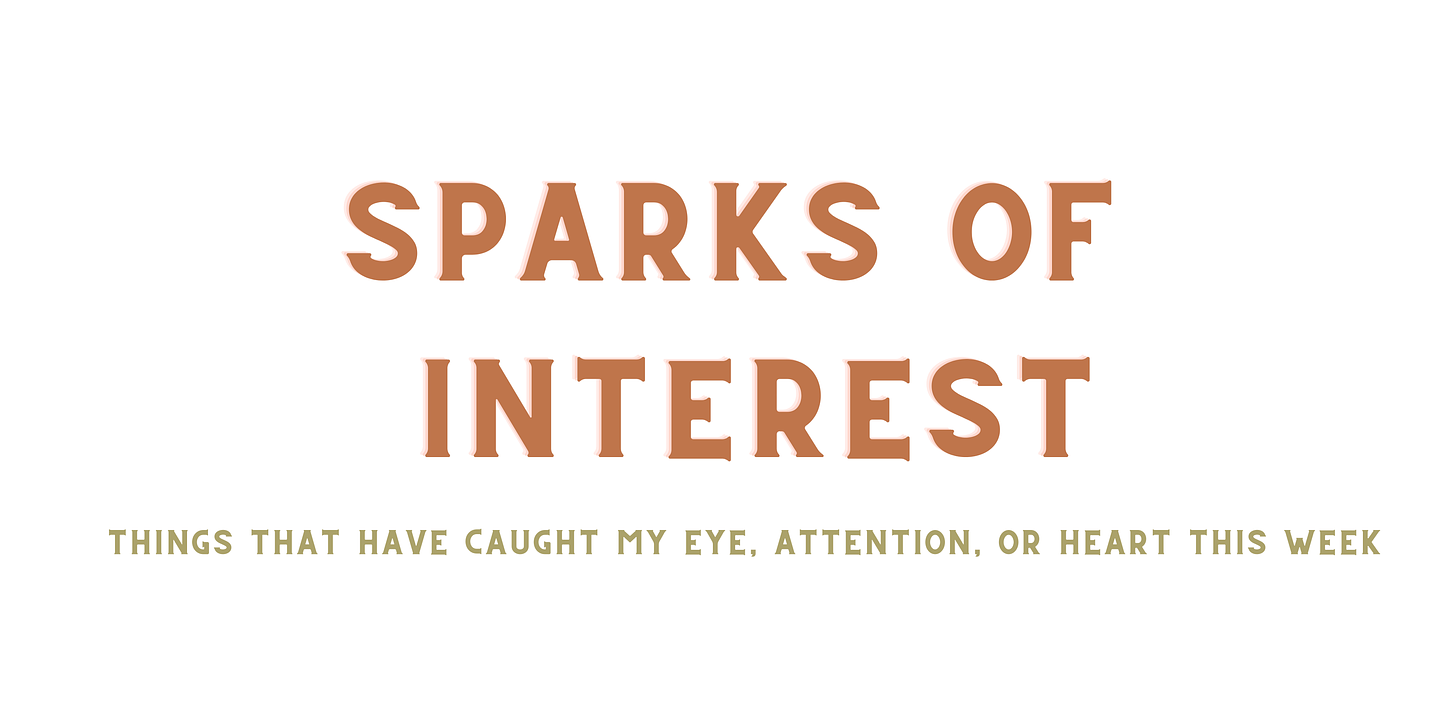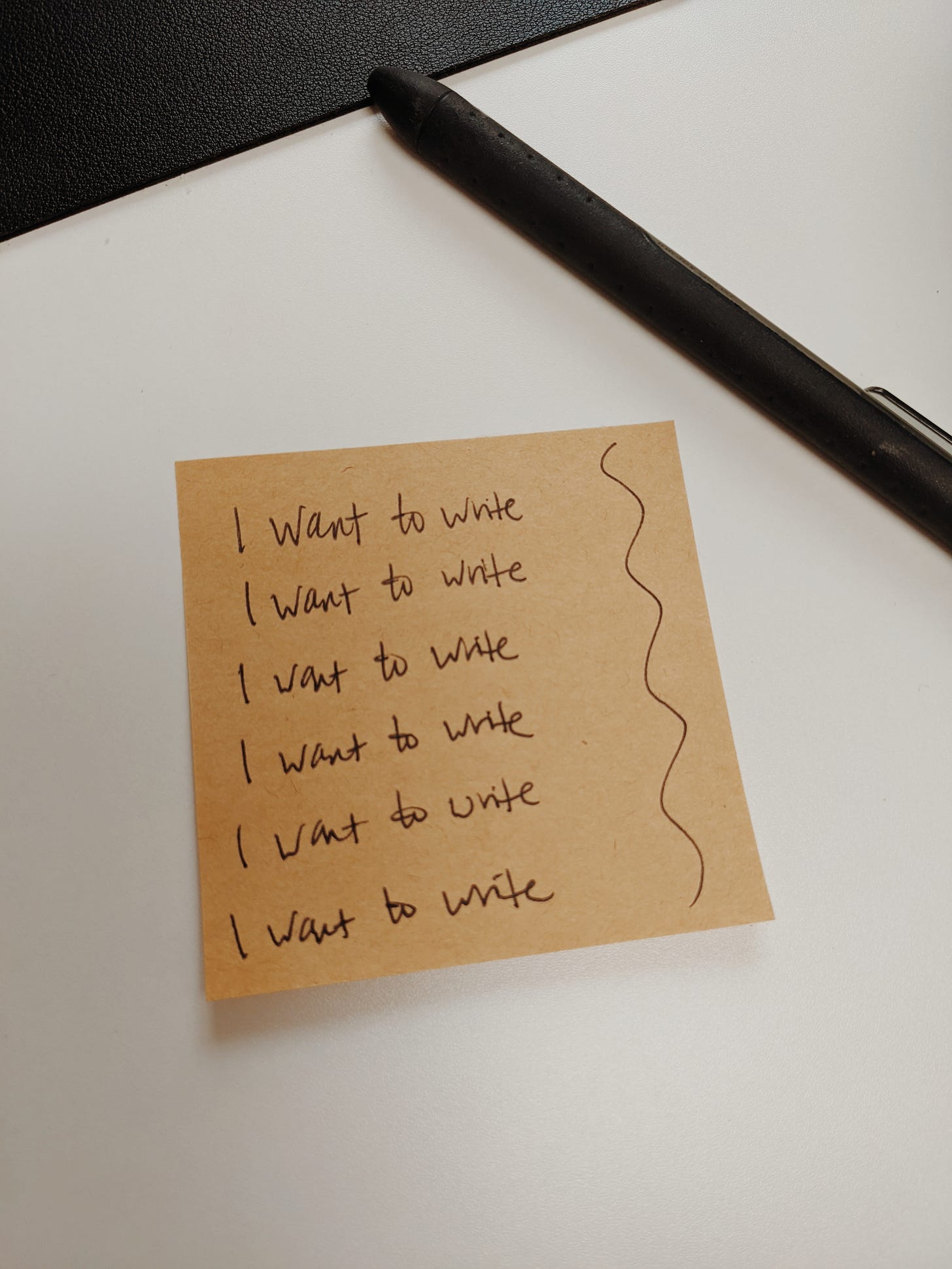Human Stuff is a free weekly newsletter. If you’d like to create reciprocity for my work and also access my monthly reflection guide, I invite you to become a paid subscriber. This is a reader-supported offering and I’m so grateful for your presence here.
Please feel free to share parts of this newsletter that connect with you on social media or send to someone you love.
A song I’ve been loving:
On Monday evening, I went to the weekly dharma talk at my local Buddhist meditation center. The talk was centered around noticing our delusions — one of the three “poisons” that block us from our true self (the others being greed and hatred). We are in delusion when we don’t see ourselves or others clearly. We are in delusion when we get consumed by the stories we tell ourselves, or by the judgments we forget aren’t true, or by the ways of being that go against our true nature. Delusion happens whenever we act in ways that pull us further from our inherent truth, usually when we’re not present or aware of what is swirling within us.
During the practice, we were asked to bring something to mind we’ve been working to let go of— something that stems from a delusion we carry. What immediately came to mind was the delusion that I’m more valuable when I’m “well” — and that being well means being “better”: more respectable, more professional, more admirable, more likable, more trustworthy, more wise, more. When I check in with myself and my values, I know this isn’t true. Yet when I look at my life and the things that have kept me from being honest, this overarching idea is present. It’s a delusion I’ve been working on releasing for years.
As someone who has struggled with depression since I was young and was recently diagnosed with inattentive ADHD, the notion that my wellness is a determining factor of how deserving, worthy, enough, or respectable I am feels like an impossible standard, and one I will always fall short of. It’s a set up to feel like a failure any time being a person is challenging. And I’ve realized how much pressure I’ve put on myself to be, and stay, well — as if being well is inherently better on the hierarchy of humanity. The pressure came even bigger when I became a therapist, and then when I became someone with a public presence — the pressure to be an image of healing and growth, a walking testament to what’s possible when we choose to show up for ourselves, a reminder for others that healing works — and that it working means we get “better” for the rest of time.
The problem with this isn’t the possibility of wellness, or the fact that we all deserve to be deeply well, or the truth that we can grow and become more whole. The problem isn’t the desire to be well or the reality that life tends to feel a lot better in seasons where we are well. The problem, for me, is how this striving often sets us up to hide when we’re not in a season of feeling our best, and to feel bad about ourselves anytime life feels hard. Which then creates a deep urgency to get better, quickly. And life is going to continue feeling hard — more so in some seasons than others — forever. We will never arrive.
I’ve been unraveling from the belief that I’m more valuable when I’m well for a long time. I’ve been slowly removing the layers of pressure I’ve been wearing and discovering what it’s like to stop striving for “well” and to instead let myself just be. You probably notice this in my writing — a space I’ve explored a lot of this process. And in this unraveling, I’ve recognized the ablism present — the ways I’ve been conditioned by the systems we live in — the insidious beast of wellness culture — the messages we’ve all received about how if we just work hard enough, and strive enough, and do enough, we can eliminate difficulty and become walking beacons for wellness.
Giving up on wellness has been one of the biggest reliefs in my life, and ironically has brought more capacity for wellness. Giving up on striving for some other place has brought me back to my own body, right now, exactly as it is, and allowed me to tune in to what it actually needs. Giving up on becoming a symbol of wellness has allowed me to share others parts of me — parts that might never be “well” — parts that still struggle and aren’t something to be ashamed of or hide until they’re better. Giving up on the idea that doing all the right things will bring about a perfect sense of wellness has allowed me to accept my seasons of depression — accept the challenges I experience from ADHD — accept the never-ending cycles of grief I face from what’s happened in my life — accept that my body will age, will slowly deteriorate, that my wrinkles are a sign of life, that being prone to aliveness is nothing to try and fix but something to celebrate, to awe over, to have reverence for.
Further, giving up the personal obsession with needing to be well has allowed me to orient outward more — see others more — notice systems outside of myself that influence well-being more — notice how many people don’t have access to wellness — notice all the ways wellness culture has conditioned us to forget about the larger forces at play that impact our capacity to be well — notice the changes that need to take place outside of me so everyone can be well.
All of this has done the opposite of what I was conditioned it would do: it hasn’t brought on an onslaught of shame or isolated me. It hasn’t been embarrassing. It hasn’t been humiliating. It’s been connecting. It’s been a balm, a cool rag on the forehead, a deep breathe. It’s brought more real joy to my world. It’s given me the chance to see what happens when we let ourselves be fully human, which includes being unwell sometimes. I’m not living as a cut-off version of myself anymore — I’m living as the whole thing. And it’s hard as hell sometimes to no longer pretend there’s a magical land of wellness I’ll eventually reach. But the relief of embracing all of it is what aliveness actually feels like. I don’t always feel well, but I always feel deeply alive. And that is what I really want to be.
The popular notion of “share from your scars, not from your wounds” has been ringing in our ears for years. And I used to believe in that — I still do, to some extent. Sharing from a place that feels resourced and boundaried is important. Sharing in a way that doesn’t dangle our needs on the response from others is important. Sharing when we’re ready, when it feels aligned, when it feels nourishing is important.
But there is something to be said about also giving ourselves permission to share all the things that may never full heal — all the parts of us we’re still grappling with — all the unanswered questions, the wounds that continue to get poked, the challenges we find ourselves in, the battles we are facing right now, that others are also facing, not because we’re not well enough but because we are human beings, being human.
I was long desperate to be “well”. Now, all I want is to be real — to be whole — to be fully alive, which includes days and seasons of not being as well. It includes moments of not being my “Best Self”. It includes acting out of integrity sometimes. It includes swirls of unknown sweeping me into fear. It includes getting sick, and losing my way, and saying the wrong thing. It includes having days where I forget to drink water. It includes tragedy and grief. It includes self-judgment and all the things we’re told don’t exist when we are “well.” It includes getting confused between what I think and what I think I’m supposed to think. It includes all of it. And I will spend my life practicing the art of remembering all of it isn’t a problem — it’s being alive. It’s a gift.
We don’t need to wait until we’re well to be seen.
We don’t need to force wellness when we’re actually struggling.
We don’t need to constantly strive to be somewhere else, someone else.
We don’t need to make ourselves bad or wrong for being human.
We don’t need to feel like anything other than well isn’t enough.
And the magnificent part is that when we finally allow what is true to be true — we also let in everything that is well, that is good, that is beautiful, that is connected, that is joyful, that is meaningful, in a way that is genuine and not forced, real and not urgent, grounded and not pressured, for the experience of it and not for how it looks to anyone else.
We let ourselves experience all of it. And that might be the whole entire point.
△ Her Kind by Naomi Jackson -- On Losing and Finding My Mind
△ Be A Man — Modernists and Traditionalists Debate Masculinity
△ Seth Godin on creativity, embracing failure, and spreading big ideas
△ A guided practice for cultivating attention
△ This stunning and resonant newsletter from
△ Already Enough is out on paperback!
△ My Trade Is Mystery: Seven Meditations from a Life in Writing
△Naming what is true in Post-Its around my office —
PS. Paid subscribers — this month’s reflection guide is here.
With care,
Lisa








“I don’t always feel well, but I always feel deeply alive. And that is what I really want to be.” This resonated with me so much. I’m a perfectionist, and being well is a state of perfection. But I’m also human, which means I’m amazingly and wonderfully imperfect--no matter what I feel, I’m alive. And that’s a gift in itself.
"I was long desperate to be “well”. Now, all I want is to be real — to be whole — to be fully alive, which includes days and seasons of not being as well." You are speaking my language. Really beautiful reflection Lisa <3. I've been enjoying seeing more of you, how you think, and your writing outside of Instagram.